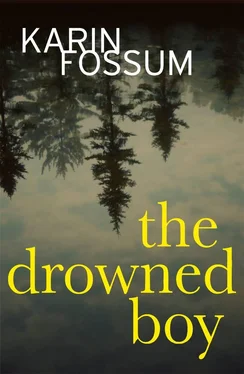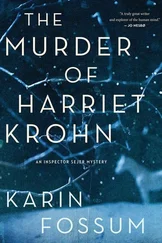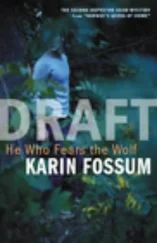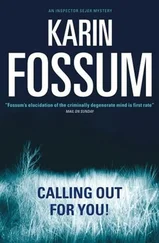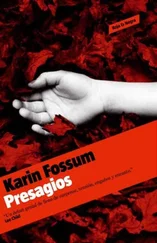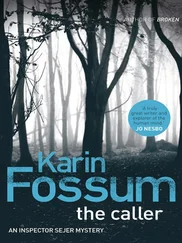Karin Fossum - The Drowned Boy
Здесь есть возможность читать онлайн «Karin Fossum - The Drowned Boy» весь текст электронной книги совершенно бесплатно (целиком полную версию без сокращений). В некоторых случаях можно слушать аудио, скачать через торрент в формате fb2 и присутствует краткое содержание. Город: London, Год выпуска: 2015, ISBN: 2015, Издательство: Harvill Secker, Жанр: Полицейский детектив, Триллер, на английском языке. Описание произведения, (предисловие) а так же отзывы посетителей доступны на портале библиотеки ЛибКат.
- Название:The Drowned Boy
- Автор:
- Издательство:Harvill Secker
- Жанр:
- Год:2015
- Город:London
- ISBN:978-1-84655-854-2
- Рейтинг книги:3 / 5. Голосов: 1
-
Избранное:Добавить в избранное
- Отзывы:
-
Ваша оценка:
- 60
- 1
- 2
- 3
- 4
- 5
The Drowned Boy: краткое содержание, описание и аннотация
Предлагаем к чтению аннотацию, описание, краткое содержание или предисловие (зависит от того, что написал сам автор книги «The Drowned Boy»). Если вы не нашли необходимую информацию о книге — напишите в комментариях, мы постараемся отыскать её.
A 16-month-old boy is found drowned in a pond right by his home. Chief Inspector Sejer is called to the scene as there is something troubling about the mother’s story. As even her own family turns against her, Sejer is determined to get to the truth.
The Drowned Boy — читать онлайн бесплатно полную книгу (весь текст) целиком
Ниже представлен текст книги, разбитый по страницам. Система сохранения места последней прочитанной страницы, позволяет с удобством читать онлайн бесплатно книгу «The Drowned Boy», без необходимости каждый раз заново искать на чём Вы остановились. Поставьте закладку, и сможете в любой момент перейти на страницу, на которой закончили чтение.
Интервал:
Закладка:
Karin Fossum
The Drowned Boy
Prologue
If a victim falls into water unexpectedly, he will immediately take one or two deep breaths (respiration surprise) and thus draw water down into the airways, which triggers violent and sustained coughing. When the victim is then wholly immersed in water, he holds his breath and will in most cases float up to the surface again. Whereupon he will gasp for air and once more draw water down into his lungs, thus causing further coughing. The drowning person is then overcome by panic and will scream and thrash with his arms and legs, splashing around on the surface, grabbing hold of anything within reach: a boat, an oar, a friend.
The head is immersed again and more water is drawn down into the lungs in deep breaths. The victim may float back up to the surface once or several times more, but not necessarily three as folklore would lead us to believe. Finally he sinks to the bottom and all is over. This struggle in the water can last for just under a minute or several minutes, depending on the physical health and general stamina of the victim. But eventually he will sink to the bottom, exhausted, open his mouth, and draw the water down into his lungs. He will lose consciousness, go into spasms, and start retching; he will turn blue and become limp. And finally, following this fierce fight for life, he will fall into a coma and die.
1
The dizziness hit him in short, sharp bursts that overwhelmed him. Even though he fought against it, he lost his balance. This is not good, he thought to himself in desperation. This is it. He tried as best he could to stay on his feet, managing somehow to get over to the mirror on the wall to study his face with keen eyes. No, I can’t ignore it anymore. It must be a tumor, he thought, presumably a brain tumor. Why should I get away with it? I’m no better than anyone else, not in the slightest. Of course it was cancer. That’s what we die of these days, one in three, he thought. Even one in two if we live to be old enough. And soon I’ll be an old man; I’m halfway to a hundred. But I’m probably going to die now. Just like Elise died of cancer at the age of forty. Slowly, over time, she was drained of strength and became pale, jaundiced, and emaciated, with liver failure and all that goes with it. An attack of hysterical, rampant cell division as she lay in a cool white bed for those final hours in University Hospital. Stop, don’t think about that now. There’s enough suffering in the world.
He stood leaning against the wall for a while. Trying to breathe slowly and steadily, to gather his strength, pull himself together. Well, so be it, he thought. I can’t say I wasn’t prepared, because I am. I’ve always known it would end like this, known it for far too long. I subconsciously harbored the fear that it would get me in the end too. Like Elise. Struck down like lightning. By a virulent and aggressive disease: let’s get the lungs, now the bones, and then the brain. We’ll break this organism down, because that’s what we do. Got to be dignified about this, he thought. Don’t make a fuss — that’s never good. On the other hand, it might be nothing. Please, dear God, let it be nothing. What God? he asked himself in desperation. I don’t have a God, and perhaps I’m going to die. And afterward all will be dark and empty, a great nothingness, a deafening silence.
His cell phone started to ring in his pocket; despite all the chaos inside, he had to get a grip. He put the phone to his ear and heard the voice of his colleague Jacob Skarre on the other end. He sounded agitated. He was overwhelmed by another bout of dizziness. It was sudden and brutal and nearly knocked him off his feet. The cell phone fell out of his hand, so he bent down quickly to pick it up. But instead he managed to push it across the floor and under the sofa. He swore out loud and got down on his knees, then lay on his stomach and wriggled under the sofa. He spotted the phone right at the back against the baseboard. But then something caught his eye, something small and red. To his surprise, he saw that it was a Lego brick. It must have been there since Matteus was little and had managed to avoid the mop for years, a sign of sloppy work. It was a small square brick. A beautiful, completely perfect little red cube: the most versatile and beautiful brick there was, as it fit everywhere. He squeezed it in his hand and felt the sharp edges dig into his skin. And there, lying on his stomach under the sofa, childhood memories from Gamle Møllevej in Roskilde came flooding back. The white brick house with painted blue window-frames and hollyhocks by the wall, the lawn and old plum trees, and the brown speckled bantams that tripped around the lush, flowering garden. Every morning he was allowed to collect the tiny eggs in a basket. He remembered his father, stern and gray, tall and lean like himself, and his mother’s porcelain figurines in the kitchen window. He snapped back and wriggled out again. He lay there for a moment, gasping for breath.
“Are you there? What happened? Did you lose your balance again?”
He muttered something unintelligible in reply, embarrassed and evasive and anxious. “It was you who called,” he said brusquely. “You’re the one with something to tell.”
He sat up, brushed the dust from his shirt, and popped the Lego brick in his shirt pocket. The dizziness had finally subsided.
“We’ve got a drowning,” Skarre told him. “In Damtjern, the pond up by Granfoss, you remember? About twenty minutes from Møller Church. A little boy, sixteen months old. His mother found him by the small jetty, but it was too late. The ambulance crew tried to resuscitate him for about three-quarters of an hour, to no avail. Some uncertainty as to how he ended up in the water. Also, he was naked, but we’re not quite sure what that means. So pretty uncertain all around. He could of course have gotten there on his own two feet. But, well, I’m not so sure in this case. If you come over, perhaps we can sort it out. It’s the last house in Dambråten, white, with a red outhouse. The boy is lying on the grass here.”
“Right,” he said. “I’m on my way. There in half an hour.”
And then, after a short pause: “Is there something that doesn’t feel right? Is that why you called?”
“Yes,” Skarre replied, “it’s the mother. I can’t explain it, but I think we should look a bit closer. Let’s just leave it at that; you know what I mean.”
“Don’t let people stomp all over the place,” Sejer said. “Keep an eye on them. Where are the parents now?”
“At the station,” Skarre informed him. “Holthemann is looking after them. The mother is hysterical and the father hasn’t said a word.”
His dog, Frank Robert, a Chinese Shar-Pei whom he simply called Frank, raised his head in anticipation and looked at him eagerly. In among the folds and wrinkles so characteristic of the breed, he saw those intense eyes that always hit his soft spot. Eyes that pleaded and begged, that he found hard to resist and made his authority drain away like spilled water. The dog was his weakness and he did nothing to fight it; spoiling the wrinkly little mutt was his greatest pleasure — a pleasure that had resulted in a few too many pounds.
“Come on, fatty,” he said. “Let’s go out to the car.”
The dog jumped up, shot over to the door, and stood there whining; he couldn’t get out soon enough. Sejer’s apartment was on the twelfth floor, and they always used the stairs, the dog bounding down the steps in a steady, well-practiced rhythm. They came out onto the square and walked over to the car. The dog collapsed in the back seat of the Volvo with a great sigh, true to habit. A baby, Sejer thought, only sixteen months old. Well, it was, in all likelihood, an accident. Or it could have been the mother, unhappy or psychotic, or beside herself with rage at a difficult child. It had happened before. Or the father, or both of them together. That had also happened before. So, drowned in a pond, he thought. Well, well, we’ll see. He turned on his blinker and pulled out onto the main road. Again, he felt a faint dizziness, but to his great relief it quickly faded away. He was in the car, so he had to keep a clear head. And always, when the dizziness subsided, he felt hugely optimistic about the future. If it happened when he was driving, he pulled over and stopped right away. But it had passed quickly this time. As though it was just a false alarm and nothing to worry about at all. Dear God, please let it be nothing.
Читать дальшеИнтервал:
Закладка:
Похожие книги на «The Drowned Boy»
Представляем Вашему вниманию похожие книги на «The Drowned Boy» списком для выбора. Мы отобрали схожую по названию и смыслу литературу в надежде предоставить читателям больше вариантов отыскать новые, интересные, ещё непрочитанные произведения.
Обсуждение, отзывы о книге «The Drowned Boy» и просто собственные мнения читателей. Оставьте ваши комментарии, напишите, что Вы думаете о произведении, его смысле или главных героях. Укажите что конкретно понравилось, а что нет, и почему Вы так считаете.
